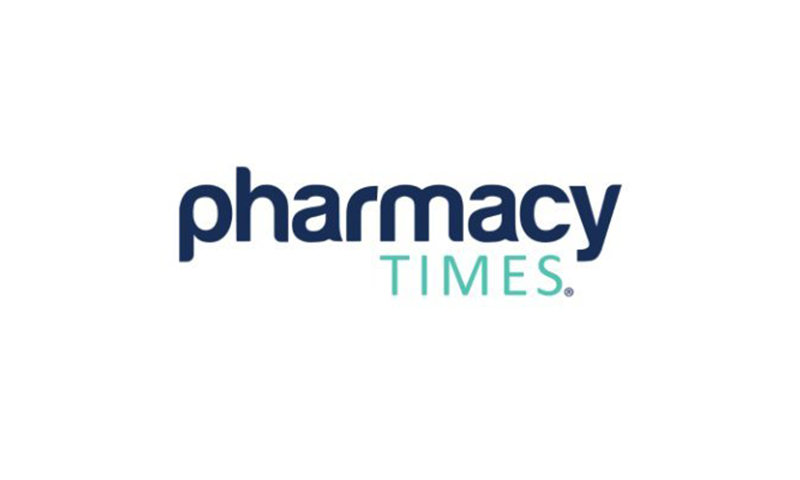COVID-19 has had a large impact on mental health disorders, including attention deficit hyperactivity disorder (ADHD). Stimulants, common medications for ADHD are concerned to be over-prescribed.
As Diagnoses Go Up, So Do Prescriptions
“There’s good data nationally that the [COVID-19] pandemic has increased rates of almost all psychiatric disorders across the board, including ADHD,” said Dr. Stephen Farone, a professor in the Departments of Psychiatry, Neuroscience and Physiology and Vice Chair for Research in the Department of Psychiatry and Behavioral Sciences at SUNY Upstate Medical University.
As the prevalence of mental health disorders increases, so does the number of psychiatric medications being prescribed to patients. These include the stimulant medications used to treat ADHD.
New data recently shared by Arrive Health, a Medtech company that partners with health systems, providers, and electronic medical records vendors across the country, shows a recent spike in psychiatric medication prescriptions in August, according to a report by Fierce Health.
The data tracks not only ADHD medications, but medications for anxiety, depression, and other mental health conditions. The report also showed that the number of these prescriptions being written has been increasing slowly, but steadily, since December of last year.
Among these medications, stimulant prescriptions for ADHD have been increasing rapidly during the past two years.
These stimulants include the popular drug Adderall, which has seen a 10 percent increase in prescriptions between 2020 and 2021.
The Relationship Between COVID-19 and ADHD
Although ADHD is a disorder that appears in childhood, it also affects an estimated 10 million adult Americans. A lot of adults’ symptoms worsened during COVID.
“There are hypotheses about why this might be the case, one is the psycho-social stress of the pandemic, and what that does to people and how it can lead to the emergence of symptoms,” Faraone also said.
He pointed out that there are hypotheses that individuals who suffered from a COVID-19 infection may be more likely to develop worsening psychiatric symptoms than their peers who were not infected.
“There are also potential biologic effects of infection that we don’t know because covid can have some impact on the brain,” he said. “An impact on the brain, depending on where it is, could lead to the emergence of psychiatric symptoms.”
The Possible Reason for Stimulant Drug Increases
One reason explaining the sharp increase in stimulant drugs is the large number of patients choosing to seek help using telehealth products, such as online pharmacies and providers. These firms expanded exponentially as the COVID-19 pandemic forced the closure of many medical offices and prevented many from trekking to a busy facility.
Among the adults who have ADHD, 75 percent have never had any treatment for ADHD according to Dr. David W. Goodman, Assistant Professor, Department of Psychiatry and Behavioral Sciences at Johns Hopkins School of Medicine. These untreated adults may have been driven to use online providers as their symptoms worsened during the pandemic.
These companies are popular with patients, says Goodman, because they are easier to use than trying to see a provider in-person, and can be more cost-effective.
There is debate among ADHD researchers as to whether these online companies can offer an appropriate diagnosis. As the field is currently a “wild west” of mental health providers, it can be hit or miss between firms.
While some online providers follow their due diligence and result in the patient getting appropriate care, others appeared to rush the examination, some being completed in as little as 30 minutes, and were quick to hand out stimulants.
“You can’t paint them all with the same brush,” says Faraone, stating that the debate hinges on whether the cons of over-prescribing online providers are outweighed by the pros of increased patient access to mental health care.
But these medications can be dangerous if prescribed incorrectly. Therefore, before starting a person on stimulants, doctors usually give a thorough evaluation of the patient, to make sure the ADHD diagnosis is correct. They then screen the patient to see if they have other disorders that may be interfering with their functioning. With online providers moving through patients so quickly, that is hard to achieve.
“We monitored emergency room data, and it’s pretty clear there is a substantial number of people coming in who have used these medications inappropriately and have serious medical problems that lead to hospitalization and sometimes death,” says Faraone. “These are relatively rare events, but they’re real.”
Despite their dangers, stimulant medications such as Adderall remain popular on the illicit market.
“There is also an issue with the misuse, diversion, and abuse of these medications,” Faraone says. “There is clear evidence that these medications, to a concerning degree, are being diverted for use other than prescribed.” For example, college kids take it to stay up late for parties or cram for a test. There’s a small group that takes them just to get high.
“It’s very serious, and it’s something prescribers have to take into account and be concerned about when prescribing these medications.”
Not All Teledoctors are Created Equal
There is insufficient data available about how often online providers prescribe stimulant medication, and Faraone says the companies need to be studied to see if they are providing quality treatment. However; currently, the rate of prescription of these medications is keeping pace with the rate of diagnosis.
“There’s no evidence for wholesale or large amounts of overprescription of these medicines,” he says.
One problem contributing to the rather murky waters of ADHD treatment for adults is the lack of national treatment guidelines. While guidelines exist for the treatment of child and adolescent ADHD, which can help providers who aren’t specifically trained in psychiatric disorders, treat these patients.
According to Faraone, the majority of these medications aren’t written by psychiatrists, and national guidelines can help standardize care and increase patient safety.
One organization, The American Professional Society of ADHD and Related Disorders (APSARD) is working to establish national treatment guidelines to help providers diagnose and treat adult ADHD. Made up of distinguished mental health professionals, APSARD hopes to have its guidelines published next year.
“With guidelines, you can set some standards of care, and part of this was motivated by online companies doing ADHD screenings in 30 minutes,” said Goodman.
These guidelines will help providers decide if stimulant medication is appropriate, and educate them about other non-stimulant interventions, such as alternative medications or behavioral therapy.
Many adults who suffer from ADHD grew up with executive functioning deficits, and interventions, such as cognitive behavior therapies, can help these patients learn skills to make their ADHD symptoms more manageable.
But stimulant medications such as Adderall aren’t likely to go away anytime soon. Not only are they popular, but Faraone says they remain the most effective way to treat ADHD.
“In terms of metrics that one uses to assess the efficacy in clinical trials, they [stimulant ADHD medications] are some of the most effective medicines in all of medicine,” he says. “Non-stimulant ADHD medications, while they are very effective for many people, are on average, less effective.”
Written by Joseph Lafave for Epoch Times



